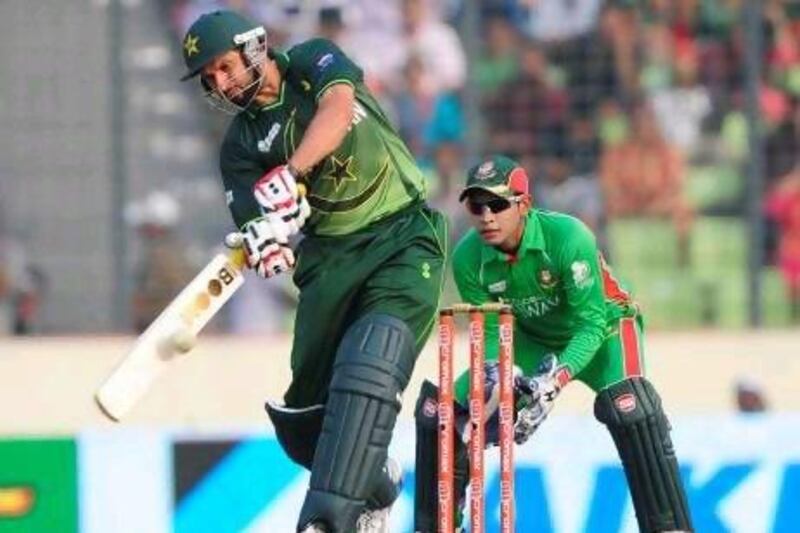That international cricket is returning to Pakistan, no matter how fleetingly, can only be read as good news.
No people deserve to endure the kind of isolation that Pakistanis have had to, not only over the last three years when there has been no international cricket at all there, but also from September 11, 2001, after which teams have been generally reluctant to tour.
Is it safe for Bangladesh's visit at the end of this month?
This is not the space for a comprehensive security analysis and in any case, it will be difficult to find a definitive answer.
The layman will read into circumstances what he wants: just days ago, a jail in north-west Pakistan was attacked by Taliban militants, which led to 400 prisoners escaping, including a number of militants.
On the other hand, the frequency of big terror attacks is less than it was between 2007 and 2010. But just as Pakistan was considered safe enough until the Sri Lanka team were attacked, it will be considered unsafe until the Bangladesh side - and a few others - go through without incident.
Not that the whole matter has been much about safety. This decision, so immense for Pakistan, for Bangladesh and most of all for Bangladesh's cricketers, has been driven by self-interest, of one man's desire to become the president of the ICC.
Mustafa Kamal, the Bangladesh Cricket Board (BCB) chairman, has often dangled the prospect of a visit to Pakistan to curry favour, amounting until now to a string of broken promises.
The Pakistan Cricket Board (PCB) has long been wary. But their need for international cricket to resume in Pakistan has compelled them into the agreement whereby both boards nominate Kamal for the ICC vice-presidency and eventual presidency (it is their turn under the ICC's current rotational system of presidential appointment in which two boards put up a joint candidate). In turn, Kamal sends Bangladesh for a tour.
As recently as last October, a senior PCB official confided that they would nominate any official from Bangladesh other than Kamal, so little did they trust him.
But needs must be met and, with a new PCB administration, some kind of peace has been reached.
Persistent whispers in the back suggest that the Indian board was trying to torpedo Bangladesh's potential visit by offering them a lucrative, first-ever series in India later this year.
Why they would do this is not clear, even if ties are poor between India and Pakistan. PCB officials, though familiar with the whispers, insist there is little truth in them.
This is the kind of crass realpolitik that drive the biggest calls in cricket. For those who think it is not self-interest, what real benefit does Bangladesh derive from playing a solitary ODI and T20 in Pakistan? Only the PCB benefit from this and Kamal.
Nobody is naive enough to be surprised by that, but the fact must be logged each time it occurs otherwise we become inured to it.
The irony is that the very system through which Kamal would become president is in danger of being scrapped and so he may not eventually realise his ambition.
Pakistan will not care what happens to Kamal as long as Bangladesh arrive, play and leave unharmed.
Does it mean anything for future tours? At the level of theory, it must. If it goes off without incident, no matter how brief, the PCB can use it as evidence to finally begin a tangible journey back to hosting games.
In practice, it will take much more to convince sides such as Australia and England.
Australia have not toured Pakistan since 1998/99, so little short of Pakistan conquering a corner of Tasmania it is unlikely they will play on Pakistan soil soon.
Neither is the ICC as convinced yet as the BCB, still dithering over whether to send its own match officials for the games or allow non-neutrals to officiate.
Tim May, the head of the global players' association, is also a vocal sceptic.
At this stage, it is not even clear whether Bangladesh's strongest side will travel. Some of their players and support staff have expressed reservations. Presumably should there be a high-profile attack between now and April 29, the situation could change again.
At some stage it was always going to require one country to take a leap of faith and tour Pakistan.
This looks and smells like one.
But it isn't.
Follow us
[ @SprtNationalUAE ]





